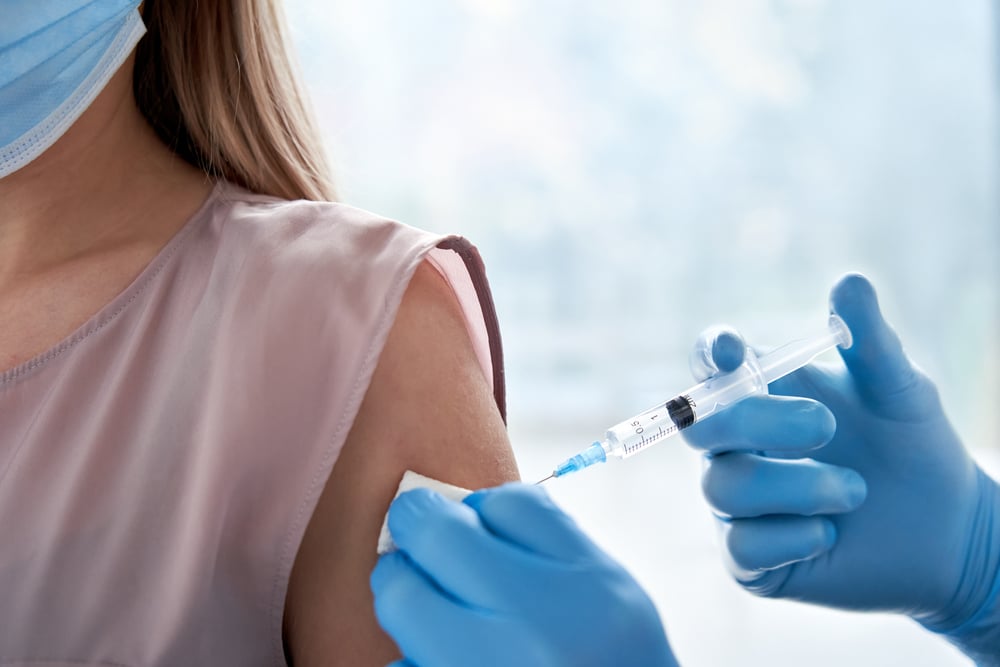NHS England is pledging to eliminate cervical cancer by 2040.
England is among the first countries in the world to set this elimination ambition within the next two decades.
The announcement is set to be made by NHS England chief Amanda Pritchard at a health leaders’ conference.
With enhanced vaccination and screening rates, the goal of drastically reducing cervical cancer cases could be achieved within the next two decades, she will highlight.
There are currently around 2,600 women in England diagnosed with cervical cancer each year.
Advocate for catch-up vaccinations
Pritchard will advocate for the NHS to provide catch-up vaccinations in community settings, such as libraries, halls, and sports venues, particularly in areas with low uptake—a practice already underway in some regions.
Additionally, Pritchard will discuss plans to enhance the NHS app, making it more user-friendly for individuals to access their vaccination history and book appointments, thus further contributing to the campaign against cervical cancer.
She is expected to say: “It is truly momentous to be able to set out such an important, life-saving ambition today – to eliminate cervical cancer would be an incredible achievement and through a combination of our HPV vaccination programme, and our highly-effective cervical screening programme, it could become a reality in in the next two decades.
“Vaccination and screening are the key tools which mean we are one step closer to achieving this and the NHS is already making it easier than ever before for people to protect themselves and their families.”
Vaccination drive
The NHS vaccination drive builds on the world-leading NHS Covid-19 vaccination programme, which allowed adults to book their own vaccine appointments online, and to get vaccinated in a range of non-NHS settings.
As part of ongoing efforts to make it easier for people to ensure they are up to date with their vaccinations, the NHS is significantly expanding the NHS App.
People will be able to view their full vaccine record and book appointments for any they are missing.
Parents will increasingly be able to see the vaccination status of their children on the App with support on how to book appointments.
Currently, most app users can view their COVID and flu vaccination status via the NHS App, but the NHS will be increasing the visibility of all 15 routine vaccine-preventable diseases, including HPV and MMR, making it easier for people to identify any missed vaccinations in their history.
Over 32.8 million people are already signed up to the NHS App, and through expanding its functions to include, booking invitation alerts, in-app bookings, and appointment notifications, the NHS aims to make it even easier for people to get vaccinated.
Cervical screening invitation
Alongside its vaccination drive, the NHS is inviting more people than ever before for cervical screening – over five million people aged 25 to 64 were invited last year, with 3.5 million tested – while self-sampling will be trialled to determine if it could be introduced as part of national screening.
The World Health Organisation considers cervical cancer to be eliminated as a public health problem when there is an incidence rate lower than four per 100,000 women.
Powerful tools
Steve Russell, chief delivery officer and national director for vaccinations and screening for NHS England, said: “Vaccination and screening are some of the most powerful tools we have for preventing disease and for keeping people from becoming unwell.
“We have learnt invaluable lessons from the pandemic, with our hugely successful Covid-19 vaccine programme saving thousands of lives, and our vision for the future of vaccination draws on those learnings, with plans to educate millions more people on the importance of vaccination, while making it easier than ever before to access vaccines online.”
Through routine and post-pandemic catch-up programmes, by school age year 10, 86.5% of girls and 81.5% of boys received one dose of the HPV vaccine, with studies suggesting the vaccine programme has prevented around 450 cancers and 17,200 pre-cancers.
Vaccines for young people
Following the latest advice from the Joint Committee on Vaccination and Immunisation (JCVI), the NHS recently updated its HPV vaccination programme to single dose instead of two doses for under 25s.
This move will make it more convenient for young people to ensure they are protected and up to date with their vaccinations.
One dose of the vaccine is now being offered to those in year 8 (aged 12 or 13 years) via the school aged immunisation service. Children are also able to get their vaccine either in school or at a community clinic.
Anyone eligible who hasn’t received their one dose HPV vaccine can catch up until their 25th birthday via their GP practice.
Also essential to the elimination of cervical cancer, is women coming forward for their routine cervical screening appointments. Currently a third of women invited do not take up the offer.



